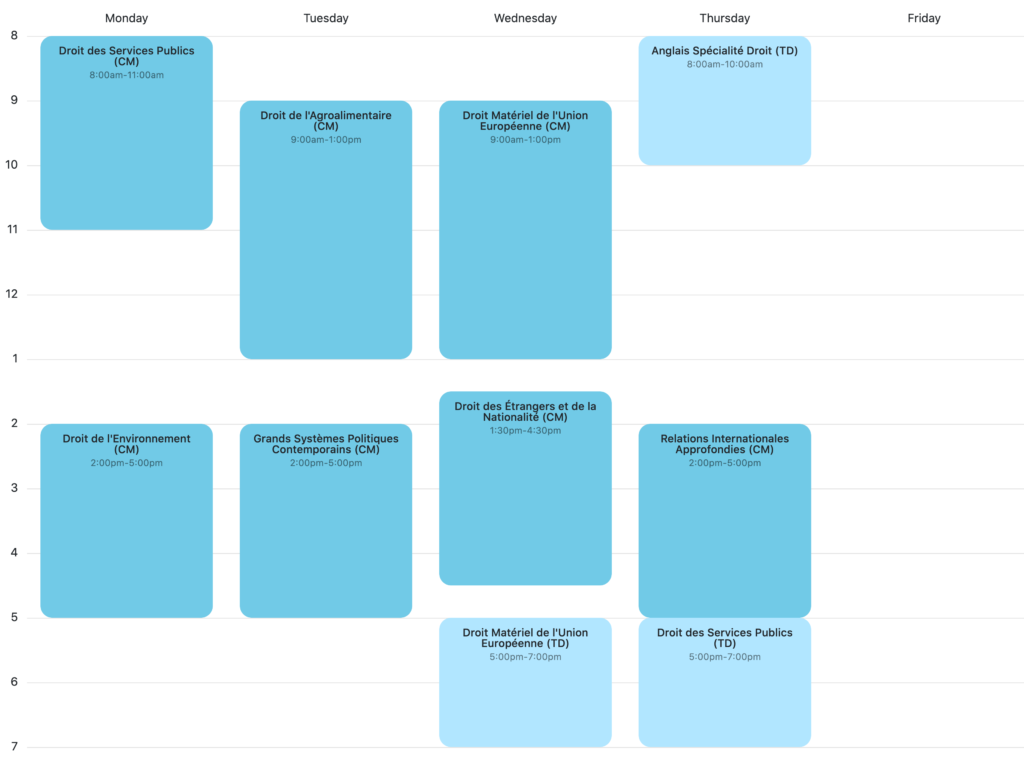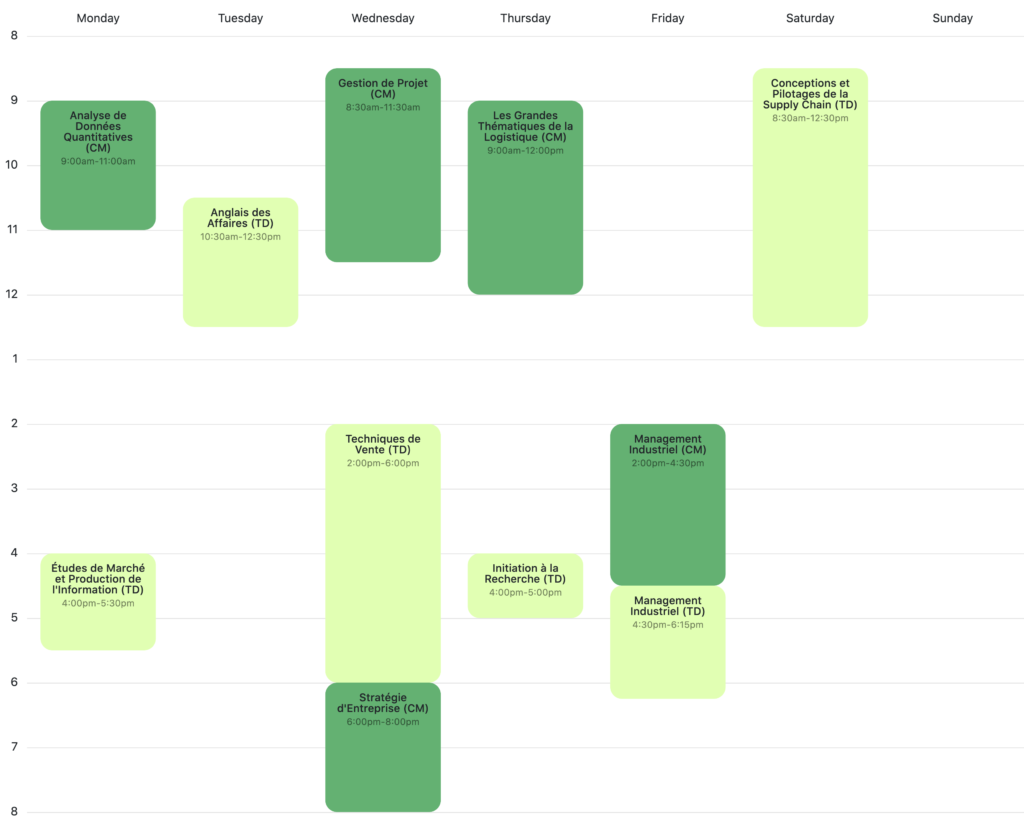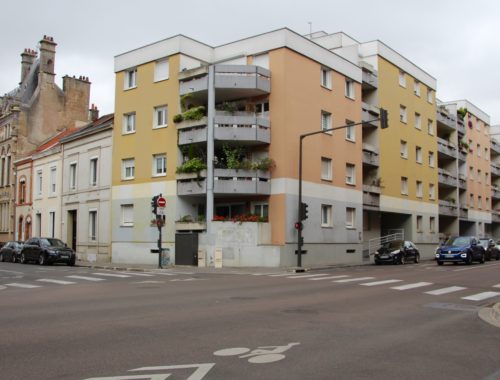
What Does a Typical French Master’s Degree Schedule Look Like?
If you’re considering a master’s degree in France, it’s important to understand what you’re getting yourself into! In general, French students spend much more time in class compared to their counterparts in American universities. So, what is a typical student schedule in France?
On average, during our bachelor’s degrees at the University of Mary Washington, Jalen and I spent 12.5 hours per week in class. This semester of the first year of our master’s degrees at Université de Reims Champagne-Ardenne, we spent 26 to 29 hours per week in class including our Cours Magistraux (CM), or lecture classes, and our Travaux Dirigés (TD), or seminar classes.
Course loads vary by both university and program, but taking a look at our timetables will give you a general idea of how much of your time you’ll be spending in class.
I am studying Public Law, and my schedule last semester was fixed, meaning it stayed the same week to week barring cancellations or make-up classes.

Jalen is studying Logistics and his schedule changed weekly, but this is a good example of an average week in his program.

As Americans, our course load this semester certainly took some getting used to! Three to four hour lectures, classes on Saturdays, and ten hour school days might sound excessive to Americans, but are perfectly normal for French students. All in all, we spend much more time in the classroom as master’s students in France than we ever did in the United States.
If you have questions or want to know more about our experience, let us know in a comment!
You May Also Like

Studying in France as Americans: Errands, Opulence, and High Temps
August 3, 2022
Applying for a Master’s Degree in France: How to Complete the Online Application
October 7, 2020


5 Comments
Lina
Hi! Love your blog. Since you spent more time in actual classes during your masters does that mean you had less homework to do outside of class?
Jalen & Maria
Thanks, Lina! The answer is yes and no! We have much less assigned work to do on a daily basis than we did during undergrad in the US. However, since we are studying in our second language and in fields that we hadn’t studied previously, we spend a good amount of time going over class materials; especially Maria in her law program. In short, the students in our programs are used to doing a lot less homework than we were used to doing back in the states. However we give ourselves homework by doing extra studying and spending time on concepts that might be more easily learned by a francophone student who has already done related studies. Thanks for reading and watching!
Maurice
Love this blog! I’m all over it, reading as much as I can.
I am all about achieving extremely high levels of proficiency in French, for work purposes. That may eventually include work as an interpreter. So, you guys understand completely what I’m shooting for.
So, what better way to take your French to stratospheric heights than by studying law, economics, philosophy, you name it, side by side with native French speakers.
So, my question is: Could you explain the difference between CM and TD. (I’m trying to get a sense of which classes will put me in close contact with other native French-speaking students.)
In my head I’m envisioning myself, working with my group in the library on a specific project. And doing this all in French. And after, we all go out for coffee or drinks and complain about how difficult this is.
I just think that building networks of friends and colleagues will help one fully integrate into French society. And nothing forges stronger bonds than panicking together about upcoming exams, or getting together to complain about how difficult professor X is, or how we love professor Y; or even, who’s planning to skip class to participate in the latest demonstrations in Place de la République.
Nonetheless, I am thrilled to have discovered your blog, and I look forward to reading more!
Jalen & Maria
Hello, thanks for reading! To answer your question, Cours Magistraux (CM) are lecture classes where the professor speaks and the students take notes. Depending on the professor, there may be limited student interaction for questions or comments. Travaux Dirigés (TD) are seminar classes that generally have fewer students and are more interactive. Group projects and presentations happen more often in a TD.
When pursuing a French degree, both of these types of classes usually come into play. There wouldn’t really be a degree comprised solely of TD, for example. In fact, many CM and TD are conceptually linked, meaning students receive information via a lecture and then ask questions and do projects with this information in the associated TD.
We hope this answers your questions and allows you to understand how classes are set up a bit better. Good luck!
Maurice
Absolutely. Thanks so much!
That makes total sense.